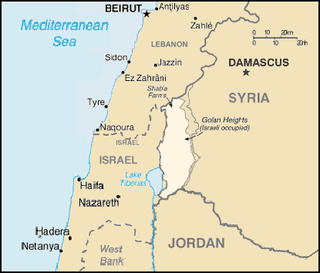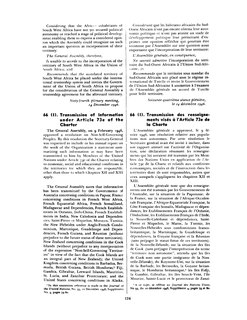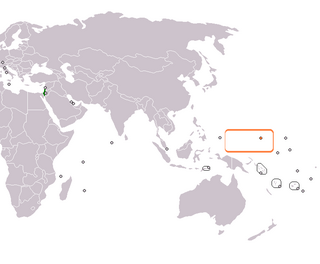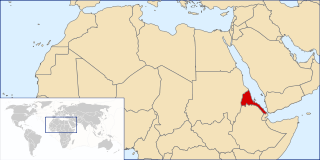Voting Results
The result of the voting was the following: [1]
| UN General Assembly Resolution A/RES/217A | |
|---|---|
| Date | 10 December 1948 |
| Code | A/RES/3/217A (Document) |
| Subject | Universal Declaration of Human Rights |
Voting summary |
|
| Result | Ratified and Adopted |
United Nations General Assembly Resolution 217A was adopted on December 10, 1948, to ratify the Universal Declaration of Human Rights.
The resolution was adopted by a majority of 48 countries from among the 58 members of the United Nations at that time; however 8 abstained and the Republic of Honduras and the Mutawakkilite Kingdom of Yemen did not vote.
The result of the voting was the following: [1]

The United Nations General Assembly is one of the six principal organs of the United Nations (UN), serving as the main deliberative, policymaking, and representative organ of the UN. Its powers, composition, functions, and procedures are set out in Chapter IV of the United Nations Charter. The UNGA is responsible for the UN budget, appointing the non-permanent members to the Security Council, appointing the Secretary-General of the United Nations, receiving reports from other parts of the UN system, and making recommendations through resolutions. It also establishes numerous subsidiary organs to advance or assist in its broad mandate. The UNGA is the only UN organ wherein all member states have equal representation.

A United Nations Security Council resolution is a United Nations resolution adopted by the fifteen members of the Security Council (UNSC); the United Nations (UN) body charged with "primary responsibility for the maintenance of international peace and security".
A United Nations General Assembly Resolution is a decision or declaration voted on by all member states of the United Nations in the General Assembly.

United Nations Security Council resolution 497, adopted unanimously on 17 December 1981, declared that the Israeli Golan Heights Law, which effectively annexed the Golan Heights, is "null and void and without international legal effect" and further calls on Israel to rescind its action.

Chapter XI of the United Nations Charter refers to a non-self-governing territory (NSGT) as a territory "whose people have not yet attained a full measure of self-government." In practice, a NSGT is a territory deemed by the United Nations General Assembly (UNGA) to be "non-self-governing". Chapter XI of the UN Charter also includes a "Declaration on Non-Self-Governing Territories" that the interests of the occupants of dependent territories are paramount and requires member states of the United Nations in control of such territories to submit annual information reports concerning the development of those territories. Since 1946, the UNGA has maintained a list of non-self governing territories under member states' control. Since its inception, dozens of territories have been removed from the list, typically when they attained independence or internal self-government, while other territories have been added as new administering countries joined the United Nations or the General Assembly reassessed the status of certain territories.
United Nations Security Council Resolution 339 was adopted on 23 October 1973 in order to bring a ceasefire in the Yom Kippur War where Resolution 338 two days before had failed.

United Nations Security Council Resolution 350, adopted on 31 May 1974, established the United Nations Disengagement Observer Force, to monitor the ceasefire between Israel and Syria in the wake of the Yom Kippur War. UNDOF was initially established for a period of six months, but has had its mandate renewed by subsequent resolutions.
United Nations Security Council Resolution 216 was adopted by the United Nations Security Council on 12 November 1965, the day after the British Dependency of Southern Rhodesia's Unilateral Declaration of Independence from the British Empire as the state of Rhodesia. The vote was ten to none, with one member, France, abstaining.

United Nations Security Council Resolution 83, adopted on June 27, 1950, determined that the attack on the Republic of Korea by forces from North Korea constituted a breach of the peace. The Council called for an immediate cessation of hostilities and for the authorities in North Korea to withdraw their armed forces to the 38th parallel. They also noted the report by the United Nations Commission on Korea that stated North Korea's failure to comply with Security Council Resolution 82 and that urgent military measures were required to restore international peace and security.
United Nations Security Council Resolution 217, adopted unanimously on November 20, 1965, determined that the situation resulting from the Unilateral Declaration of Independence was extremely grave and that the Government of the United Kingdom should put an end to it as it constitutes a threat to international peace and security. The Council also called upon nations not to recognize what it deemed "this illegal authority" or entertain diplomatic relations with it. It also asked all states to refrain from economic relations with Rhodesia.

At Italy's instigation, the UN moratorium on the death penalty resolution was presented by the EU in partnership with eight co-author member States to the General Assembly of the United Nations, calling for general suspension of capital punishment throughout the world. It was twice affirmed: first, on 15 November 2007 by the Third Committee, and then subsequently reaffirmed on 18 December by the United Nations General Assembly resolution 62/149. New Zealand played a central role facilitating agreement between the co-author group and other supporters.

Israel – Micronesia relations are diplomatic and other relations between the State of Israel and the Federated States of Micronesia. Israel was among the first countries to establish formal diplomatic relations with Micronesia.

United Nations Security Council resolution 770, adopted on 13 August 1992, after reaffirming previous resolutions on the topic, including Resolution 743 (1992), Resolution 749 (1992), Resolution 761 (1992) and Resolution 764 (1992), the Council recognised the humanitarian situation in Sarajevo and other areas in Bosnia and Herzegovina.

United Nations Security Council resolution 828, adopted without a vote on 26 May 1993, after examining the application of Eritrea for membership in the United Nations, the Council recommended to the General Assembly that Eritrea be admitted.
United Nations General Assembly Resolution 62/243, titled "The Situation in the Occupied Territories of Azerbaijan", is a resolution of the United Nations General Assembly about the situation in Nagorno-Karabakh, which was adopted on March 14, 2008 at the 62nd session of the General Assembly. It became the fifth United Nations document concerning Nagorno-Karabakh and the first United Nations General Assembly document on it.

United Nations Security Council Resolution 2016 was unanimously adopted on 27 October 2011. Recognizing the "positive developments" in Libya after the Libyan Civil War and the death of Muammar Gaddafi, the resolution set a date of termination for the provisions of Security Council Resolution 1973 which allowed states to undertake "all necessary measures" to protect civilians and which formed the legal basis for military intervention by a number of foreign states. The termination date was set at 23:59, Libyan local time on 31 October 2011. The no-fly zone created with Resolution 1973 was also lifted on that date.

United Nations General Assembly Resolution 68/262 was adopted on 27 March 2014 by the sixty-eighth session of the United Nations General Assembly in response to the Russian annexation of Crimea and entitled "territorial integrity of Ukraine". The nonbinding resolution, which was supported by 100 United Nations member states, affirmed the General Assembly's commitment to the territorial integrity of Ukraine within its internationally recognized borders and underscored the invalidity of the 2014 Crimean referendum. Eleven nations voted against the resolution, while 58 abstained, and a further 24 states were absent when the vote took place.

United Nations Security Council Resolution 2166, concerning the shootdown of Malaysia Airlines Flight 17, was sponsored by Australia and adopted unanimously on 21 July 2014. The resolution expressed support for the "efforts to establish a full, thorough and independent international investigation into the incident in accordance with international civil aviation guidelines" and called on all United Nations member states "to provide any requested assistance to civil and criminal investigations".

The eleventh emergency special session of the United Nations General Assembly is centred on the 2022 Russian invasion of Ukraine. The session, held at United Nations Headquarters in New York City, convened on 28 February 2022 and was adjourned on 2 March. It culminated with the adoption of United Nations General Assembly Resolution ES-11/1.